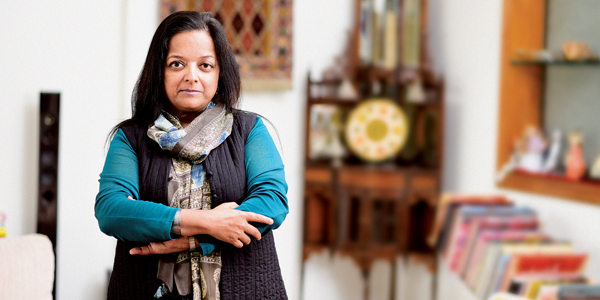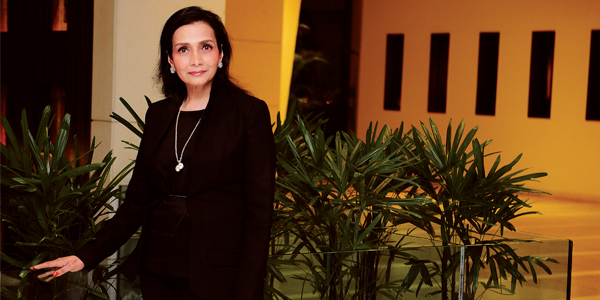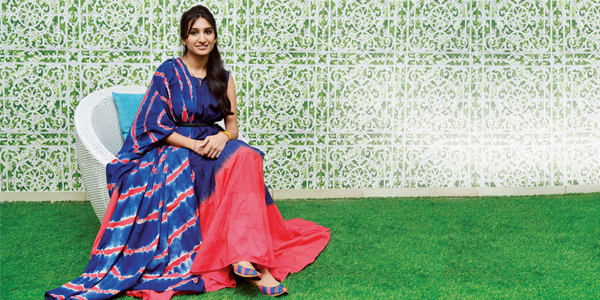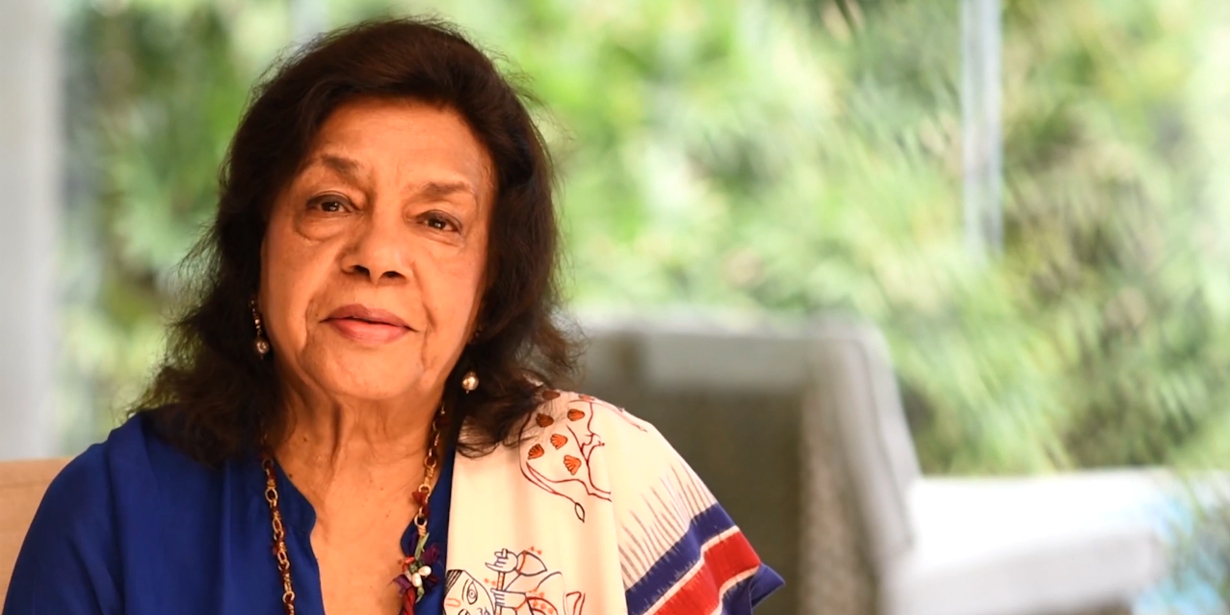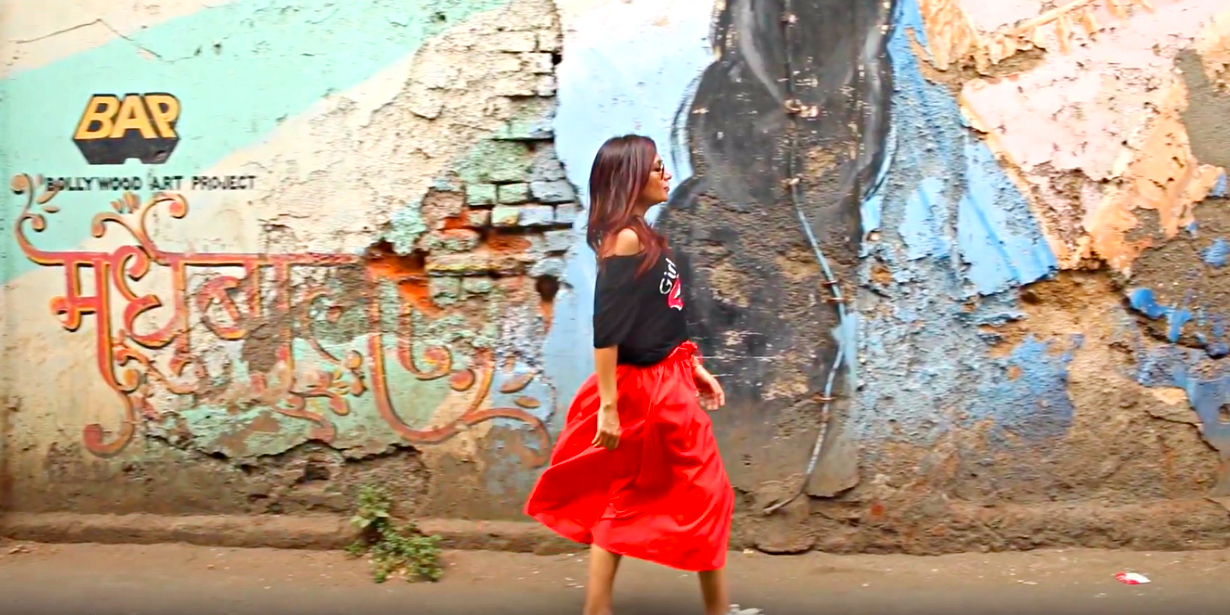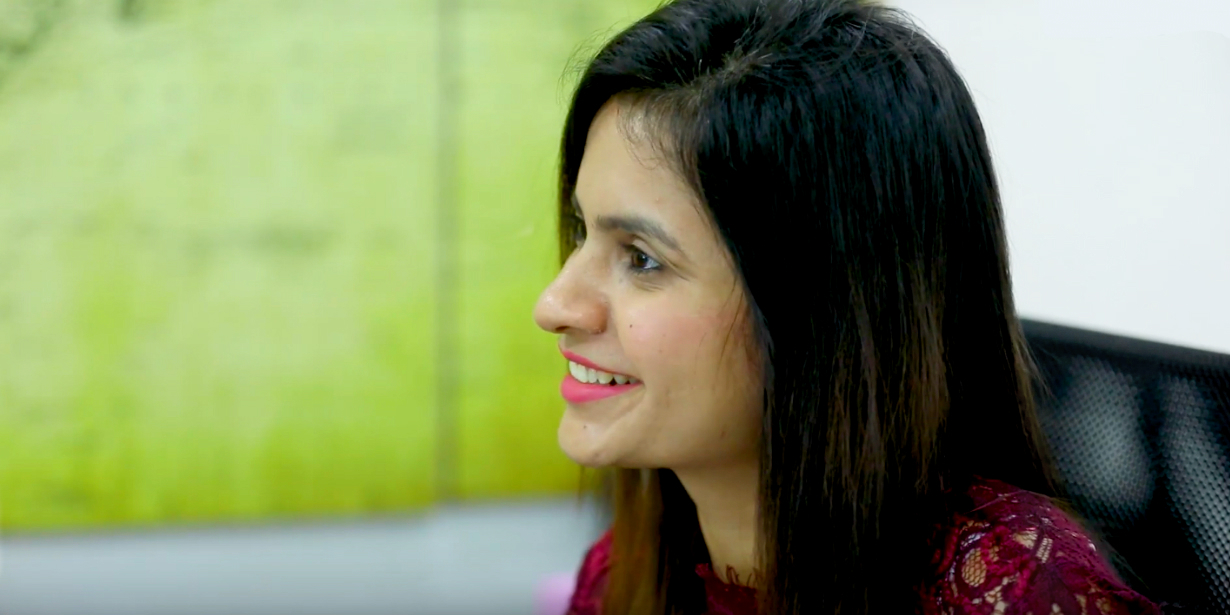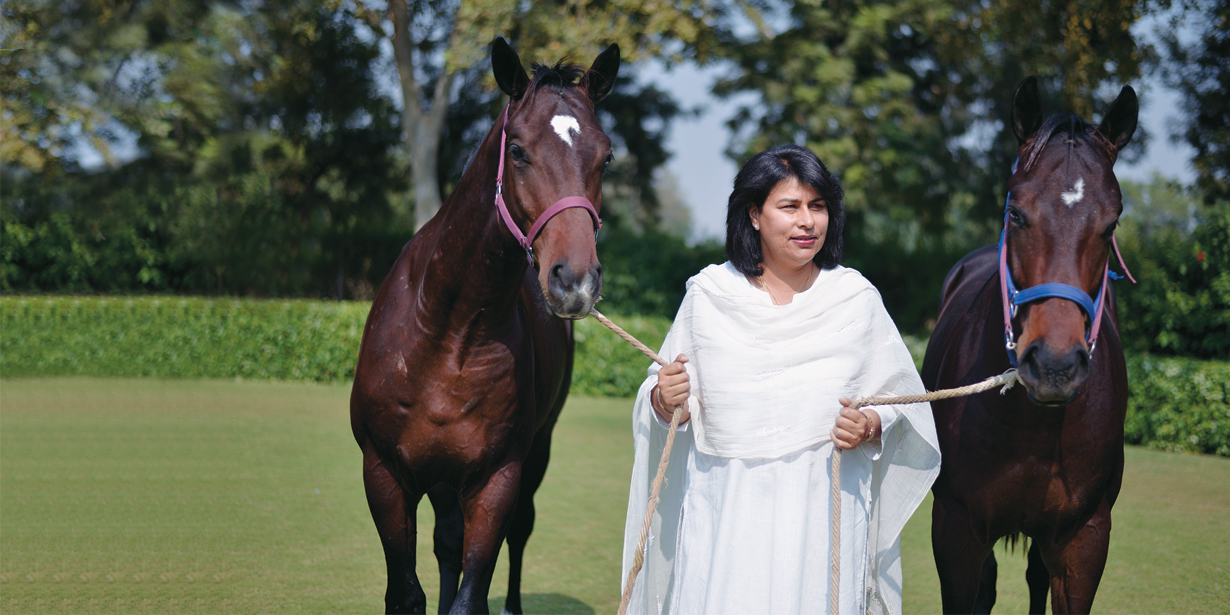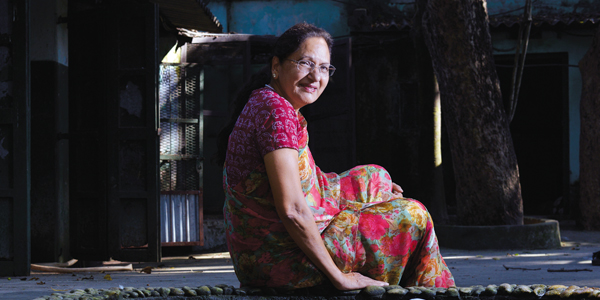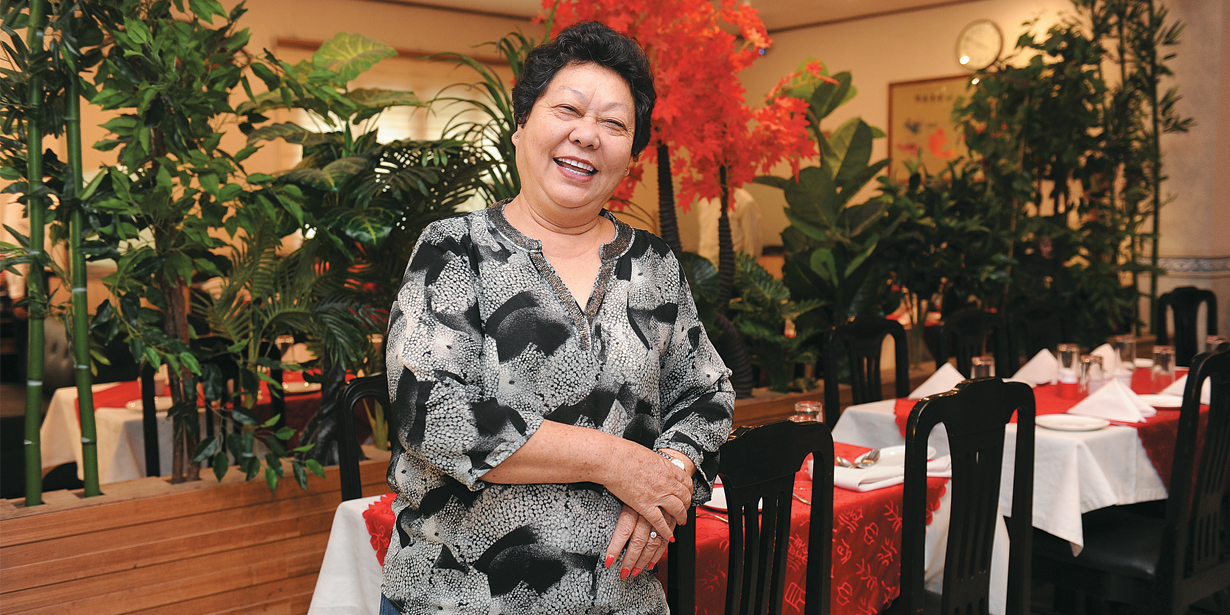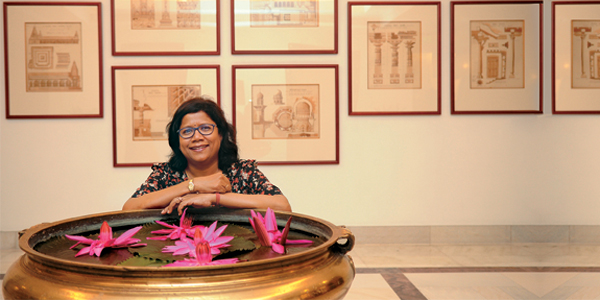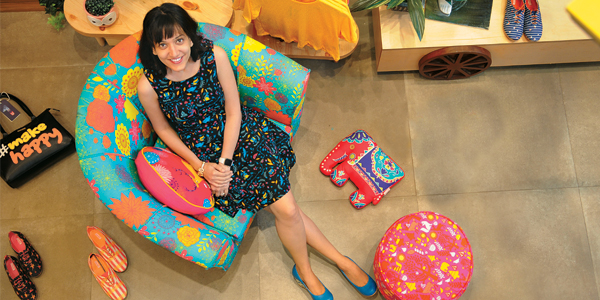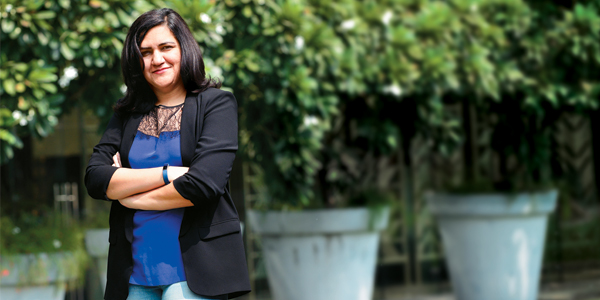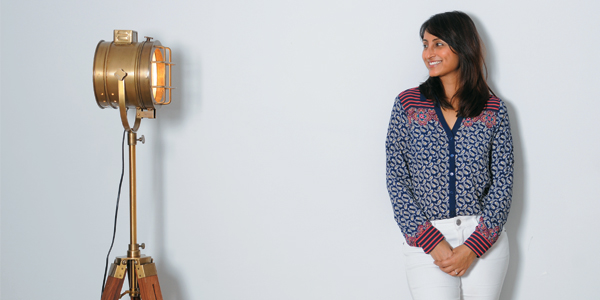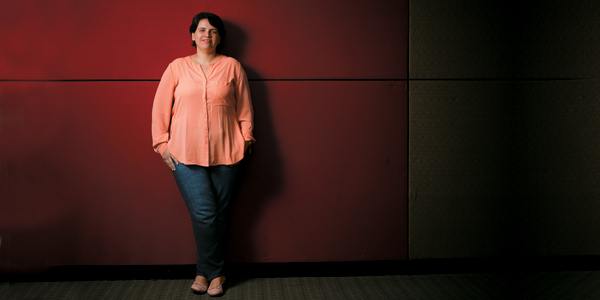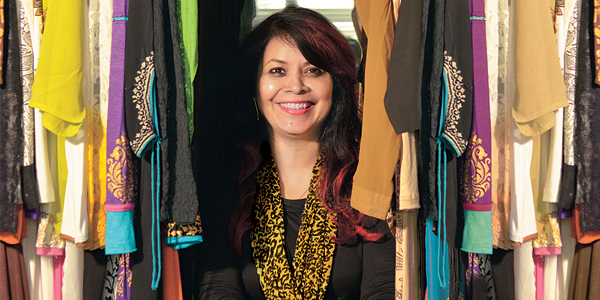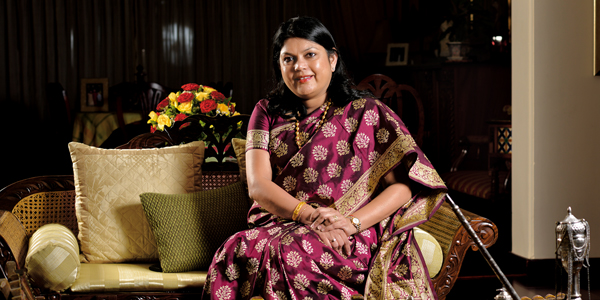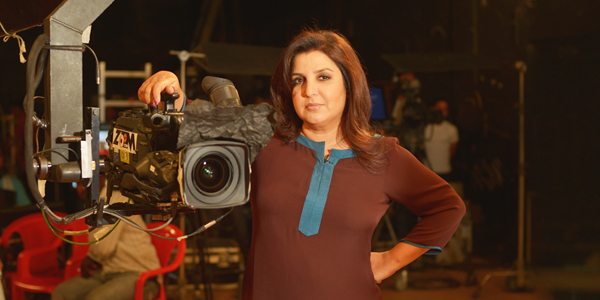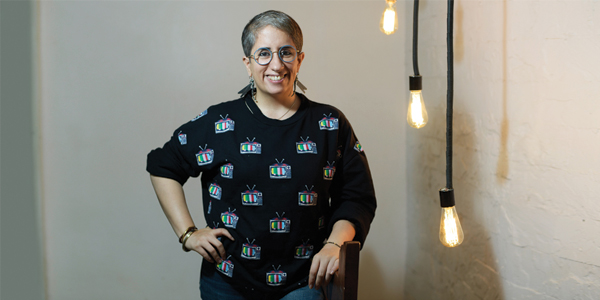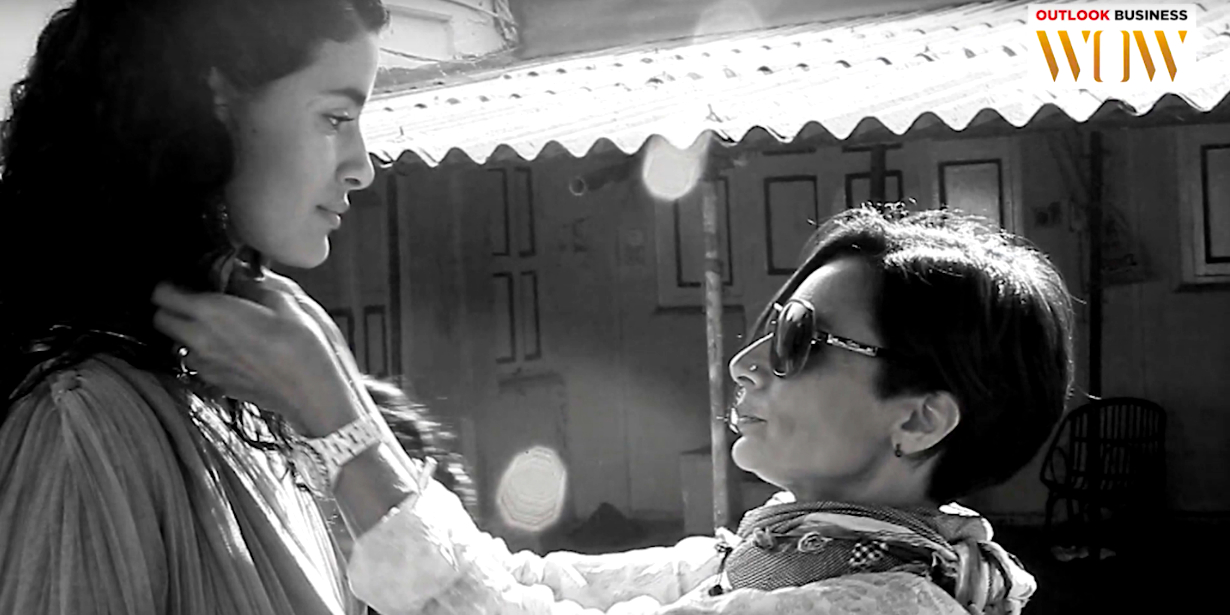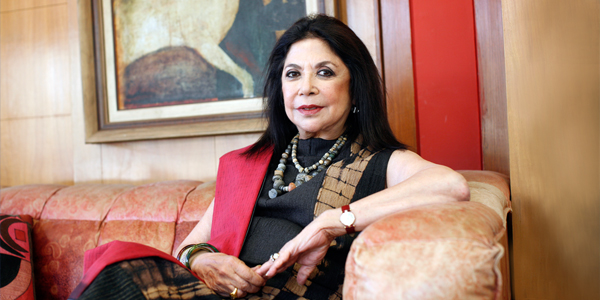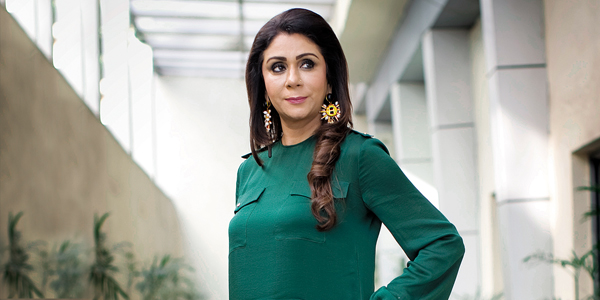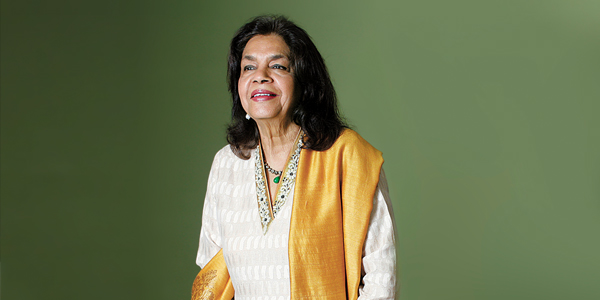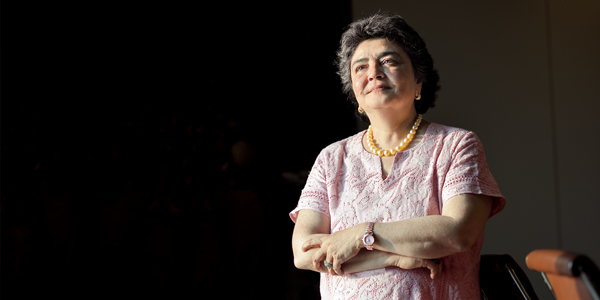An encounter with Tara Books’ founder Gita Wolf, understanding “the advantages of being a woman publisher”
Tara Books’ founder Gita Wolf explains why the credit for the growth of her international publishing business goes to collective action and collaboration
Pinned to an adult-sized soft board on the first floor of Tara Books’ high-ceilinged, roomy Book Building in Chennai’s Thiruvanmiyur suburb — a short walk from cultural centre Kalakshetra — is a birthday message. Sharing the space with postcards, photographs and other memorabilia, the A4 sheet boldly declares ‘THE ADVANTAGES OF BEING A WOMAN PUBLISHER’. Among other noteworthy points are ideas such as ‘not being moved by competitive envy’, ‘knowing your career is not dependent on age’, ‘not having to exercise power arbitrarily’, ‘being able to live in creative peace’ and, most of all, ‘not having to be one of the boys’. Addressed to the India Imprint creator Gita Wolf — with a hat-tip to the New York-based anonymous feminist group Guerilla Girls — and from the company’s editorial director V Geetha, the letter is testimony to how the duo and their team have nurtured the company over 20 years in an industry crowded with 19,000 publishers churning out 90,000 titles yearly.
 “I never really set out to be an entrepreneur; I just wanted to make books. Publishing as a business occurred to me much later, when I realised that I actually had to sell these books. The company was born out of a turning away from academia that I was going through — I wanted to do something original rather than comment on what was going on,” explains Wolf, who used to teach comparative literature in Germany back then. Armed with her savings and some money from husband Helmut and brother Mohan, Wolf attended the Frankfurt Book Fair in 1994 with little more than two book ideas and a few finished handmade pages. But as serendipity would have it, Canadian company Annick Press snapped up the concepts, funding the next stage of growth at Tara Books. “Annick Press asked for 8,000 copies of our concept The Very Hungry Lion, which needed to be screen-printed on handmade paper. We used the advance to set up our production unit in Perungudi, with C Arumugam in charge of production,” explains Wolf.
“I never really set out to be an entrepreneur; I just wanted to make books. Publishing as a business occurred to me much later, when I realised that I actually had to sell these books. The company was born out of a turning away from academia that I was going through — I wanted to do something original rather than comment on what was going on,” explains Wolf, who used to teach comparative literature in Germany back then. Armed with her savings and some money from husband Helmut and brother Mohan, Wolf attended the Frankfurt Book Fair in 1994 with little more than two book ideas and a few finished handmade pages. But as serendipity would have it, Canadian company Annick Press snapped up the concepts, funding the next stage of growth at Tara Books. “Annick Press asked for 8,000 copies of our concept The Very Hungry Lion, which needed to be screen-printed on handmade paper. We used the advance to set up our production unit in Perungudi, with C Arumugam in charge of production,” explains Wolf.
Setting up shop
It was only after this that the company began to tackle issues such as office space, its usage and employee strength. “It was a complete risk — nobody had made handmade books in these numbers before. We didn’t know how the paper would dry or how it would react. We had to recruit people, rent space, make screens, fill in the colour. So, the process had a totally open outcome. Production on that first book took six months, after which we were in business,” says the 58-year-old. That book went on to win a whole lot of design awards, after which the brand began producing a line of offset books as well. The accolades have kept coming in ever since. The Imprint has published nearly 150 books since inception, with rights for over 100 titles being granted to publishers in France, Brazil, Italy, Spain, South Korea, the Netherlands and Japan, among other countries, who have reproduced the books in their respective languages. Titles such as Elephants Never Forget, The Night Life of Trees and Do! are among the several books that have been acquired by libraries in countries such as Mexico and Brazil.
Given that her immediate family and friends wholeheartedly supported the venture, Wolf says she did not face the access problems that Arumugam, who comes from a peasant family, may have. Which is why both Wolf and Geetha are overjoyed at his success — Arumugam wholly runs the company’s production unit, printing books exclusively for Tara Books. “From the beginning, this company has been a community undertaking,” says Wolf. As she herself hailed from a typical middle-class family, there was no precedence for entrepreneurship in Wolf’s life. “We went in blind because we loved books. I could say that we have come a long way, but the way we understand editorial, we still don’t have that kind of knowledge of the business side,” she says.
From its early years, the company has made an effort to be completely self-sufficient, receiving funding intermittently from the Dutch institute Hivos which also lent it money for the Book Building. “We are probably one of the few success stories that said we actually don’t want any more money because we feel that we can manage on our own,” says Geetha. As it stands, the imprint has found what the market dictates to be a bit constraining. “We don’t want to do market research and think, ‘This is what the public wants, can we supply it?’ This is a huge risk and goes against conventional marketing wisdom,” adds Wolf.
Chips in Geetha, “We must not underestimate the reader. There are people who will buy your books even in remote villages in Agartala or Kerala. Visibility in the market is an issue that the entire book-selling trade faces. The market really doesn’t answer to anyone.” At the same time, says Wolf, the company has been deliberate and has made certain choices in terms of scale, especially in case of its handmade books. “Those books have grown in such a way that we not only have our own reprints but those that other publishers ask for; those orders keep piling up. So, we have to strike a balance.” Did the presence of other women in the publishing industry serve as an inspiration? “Though this is not a male-dominated industry, female-run publishing houses are fairly rare. But there are many women working in the publishing world, at companies such as the Anushka Ravishankar and Sayoni Basu-run Duckbill, Urvashi Butalia-run Zubaan and Arpita Das’ Yodakin,” says Geetha.
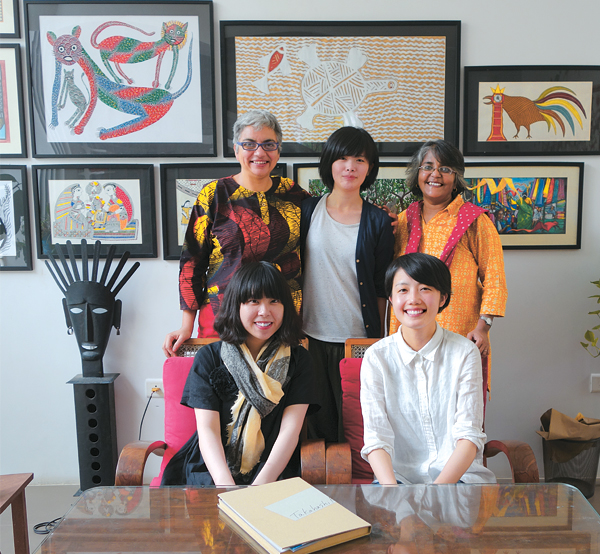
“I think it is not just about role models; we are also successful because the company has a deeply feminist structure — we genuinely believe in community and collective work. I’m by nature not hierarchical and I listen to the opinions of others. These are our strengths and I don’t know if many men have that quality,” says Wolf. When faced with a crisis, the team’s response is to rationally solve the problem, not assign blame. “If the crisis helps us learn where we went wrong, that’s fine. We have tried to inculcate this in our work culture — where we don’t blame anyone but say, ‘This didn’t work out for some reason’,” says Geetha. “Some of our male employees have turned out to be naturally feminist men. We seem to have attracted male workers who are interested in building something together, who are willing to see many sides to every topic. They want to be in a place where they are respected, where they can nurture the business. They are not aggressive,” says Wolf.
Coming unstuck
Of course, this process has not been without its fair share of mistakes and wastage of money and time, they admit. “We faced production and supply issues after our paper factory in Puducherry shut. This meant finding suppliers and training them all over again. Recently, all the paper on a shipment to Korea got completely warped. These are unforeseen production challenges,” says Wolf. There has been enough red-tape as well. “The whole publishing distribution system is very inflexible and Delhi-centred, very insensitive to those outside the capital,” says Geetha. “For instance, at the Delhi Book Fair, for the second year running, we got stuck in some corner where nobody came. Someone said, ‘Why did you not look for a better spot; did you not know anyone in the system?’ But why do we have to know somebody to get visibility?” says Wolf. Then, there is everyday bureaucracy at the Customs department and several supply challenges. “Often, you won’t find the same quality of paper when you go for a reprint. Lack of training for printing workers is another problem. So, we had to start printing in China instead,” says Geetha.
The biggest horror story, however, was the 18,000-strong order a Dutch publisher placed with the company. Arumugam sub-contracted the printing, and the contractor used glue that wasn’t compatible with handmade paper. The entire consignment had to be trashed. “But we have learnt our lessons — maybe this was the wrong time for a title, maybe we shouldn’t do fiction again. We are always rethinking our offerings, conducting a lot of course correction. We may have felt like slowing down but we have never felt like giving up,” insists Geetha. Artists and artisans associated with Tara Books are a source of learning to them, apart from art critic John Berger and in-house designer Rathna Ramanathan. “Our artist, Bhajju Shyam, has a light way of saying very profound things. He helped us understand that adivasi culture or art traditions are not static — they are very abstract. Gond women do floor markings called dignas, and Bhajju once called them the alphabet of all art. He’s willing to understand that collaborative work doesn’t imply impaired traditions,” says Geetha.
“What I value about Geetha is that she is emotional and grounds things in a context. We were working on a project on signboard painters, which are currently all over pop art. But instead, she discussed ideas such as, ‘where do the painters come from?’ ‘Who are they?’ and ‘What is happening in their lives?’” says Wolf. Explains Geetha: “Matchboxes are beautiful but the Indian matchstick industry is very exploitative, so we had to account for that in our book on the subject. How do you put that in context with the joy of reading so that it doesn’t allow the reader an easy escape? One thing that I have always liked about Gita is that she sees a book where there is none, which is an intuitive thing. I think this ability is the hallmark of our publishing success.” Clearly, this is where collaborative growth has played out. “We all complement each other. Each person has brought in something to the business,” says Wolf. What also helps is that both of them are comfortably settled in their personal lives. “There is a political understanding that has made us aware and we have learnt to put up with some stuff. Our angst is only about the state of the world, not about what we do,” says Geetha. For now, the duo is content creating Tara Books’ trademark variety of deeply enjoyable, carefully crafted handmade books.










